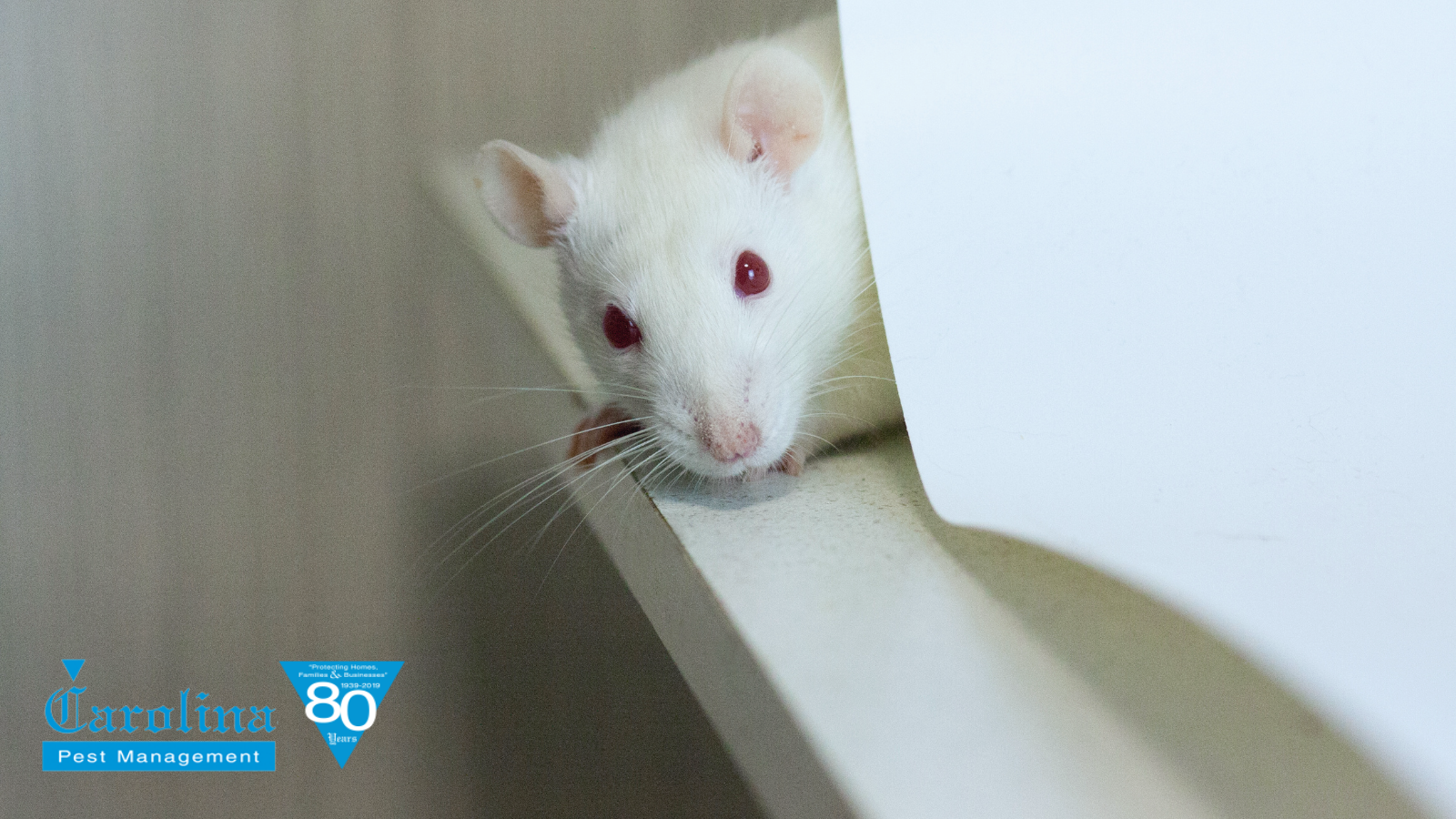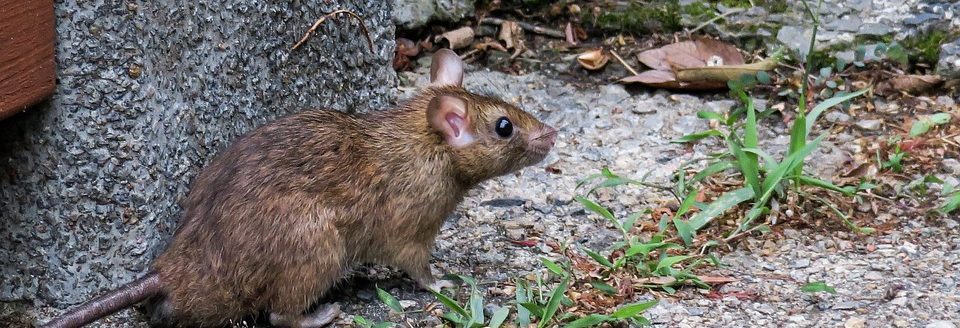How to Protect Your Electrical Wiring from Rodents
It’s no secret: Rodents like rats and mice chew everything, including wires, insulation and wood. Yet when pondering the cumulative dangers associated with a rodent infestation in Charlotte, homeowners often overlook the hidden dangers of electrical malfunctions. Correcting rodent-induced electrical problems is expensive. Failing to correct damaged electrical wiring and connections can result in a life-threatening electrical fire.

Charlotte Rodent Infestation and the Hidden Threat of Electrical Failure, Electrical Malfunction and Electrical Fires
The teeth of rats, mice and other types of problem rodents never stop growing. Thus, continuous chewing comes naturally to these critters. This can be dangerous because without protective insulation, electric wiring can easily spark a home electrical fire. According to reports from the National Fire Protection Association, fires caused by home electrical failure or malfunction kill more than 420 people per year. Injuries associated with such fires average 1,370 per year. The yearly cost for dealing with electric-induced home fires tops $1.4 billion in property damage. 
In simple terms, faulty electrical wiring and faulty electrical connections present serious risks to the structure, the personal possessions within the structure, and the family that dwells there. Any Carolina home rodent infestation risks these rodents coming into contact with:
- Electrical panels
- Loose wiring in the attic, crawlspace or walls
- Junction boxes
- AND more.
Protect Your Charlotte Home Electrical Wiring from Rodent Damage
Electrical damage caused by chewing rodents must be identified and corrected safely and quickly. However, damaged wiring is noticed far too often only after an accident has happened. Rodent chewing typically takes place in the hidden spots of your home. Sometimes the damage is less immediate than the danger of a bare wire, so it may go unnoticed for a while. Such a dangerous situation can be when rats, mice and squirrels nest around wiring and junction boxes, leading to excessive overheating. Consequences can include:
- Shorted circuits
- Tripped breakers
- Whole-home electrical outages
- Fire
Unfortunately, there is not a quick and simple way to know if your home’s wiring has been slightly damaged and might create future issues; we usually notice the damage only when a malfunction or fire is caused. For this reason a thorough safety check by an electrician can lend peace of mind.
As is often the case, though, prevention is the best defense. This means the quick elimination of any and all rodent problems BEFORE they damage your electrical system.
How to Tell If Mice Are Chewing on Wires
Since rodents are nocturnal, you may not notice their presence immediately. Even when you do, it’s not always easy to tell if the mice and rats are chewing on the wires in your home. Rats and mice usually target wires and cords located in places where they can hide easily, which makes it difficult to spot the damage before you start to see its effects. It’s common to notice electrical issues before you find the damaged wires. Power failures are common when rodent infestations are damaging your home’s electrical system.
If you notice electrical problems, start looking for signs of rodents. But you should also be proactive and monitor your electrical wiring regularly to prevent problems. To proactively determine if mice or rats are chewing on your electrical wiring, examine the wires in your home closely – even if you haven’t noticed signs of a problem. Look at wires on a regular basis, such as every month or two, inspecting them for any signs of damage. The wires or cords may not be chewed through, but instead have scratches and teeth marks.
Usually, alongside electrical cords damaged by rodents, you will find fecal matter from the pests. Rodent infestations involve large amounts of fecal matter. Rodent droppings are black and hard with a semi-elongated shape. Also, if you don’t see a live mouse or rat, you may hear them. Homeowners can sometimes hear the sounds of chewing as rodents chew through wires. If you notice any of these signs, it’s time to call a professional to handle both the rodent infestation and any potential electrical problems it has caused.
Professional Evaluation: Evidence of a Charlotte Home Rodent Infestation
The first thing a professional will do when called to your home is confirm the presence of rodents. Like all creatures, rodents have habits that are easily detected by a trained technician. As a routine practice, the technician will check your attic, basement, crawlspace, and living quarters for the following signs of rodent invasion to confirm your assessment:
- Displaced insulation
- Droppings
- Nests
- Physical sightings
- Skeletons
- Sounds of chewing
- Visible structural or wiring damage
Spotting damaged electrical wiring or components is not easy. However, when home electrical issues collide with evidence of rodents, there is strong possibility of a compromised home electrical system. A pest control technician will help you determine the extent of the problem and the best way to deal with it.
How to Stop Mice and Rats from Chewing on Wires
Having annual rodent inspections by Carolina Pest is the best way to stop mice and rats from chewing on wires. If our technicians find signs of a rodent infestation, they’ll develop a plan to remove the pests from your property.
We will do a more thorough inspection that checks common areas in the home where rodents typically hide and also determine how the rats and mice are gaining entry. Those areas of entry, as well as the places where rodents are currently living and traveling in your home, will all be addressed in the plan. Entry and exit points can be sealed, while rodents can be removed from interior spaces.
Along with getting rid of any current rodents in your home, we assist in effectively preventing any future rodent infestations. For example, we’ve seen many homeowners use mousetraps and other DIY methods for handling rodents. Unfortunately, using mousetraps as a way to get rid of rodents is ineffective and not a viable long-term solution, so the problem often recurs. A professional plan that seals areas that let rodents in and provides deterrents will better protect your home and family members from any issues that could be caused by the rodents chewing on your electrical cords.
How to Protect Electrical Wires from Rats and Other Rodents Between Inspections
While an annual rodent inspection and professional pest control plan is the best way to handle a rodent problem, you can take steps to ensure your home is safe between visits from a specialist. Between inspections, deter rats and mice by keeping all areas of the home clean without any food debris left out. Inspect your home for any new entry points for rodents and seal up cracks and holes. Any type of crack measuring more than ¼-inch gives rodents the chance to enter the property. Outdoors, you can trim back any shrubs or tree branches from the home to prevent mice and rats from entering the house from the roof. All trashcans should be kept covered to avoid foraging rodents.
You can also better protect electrical wires by limiting access to them. Wires can be sealed in protective materials such as concrete or plastic. Also, you may protect electrical wires by placing covers around them. There are even electrical cords made from protective materials that are durable enough not to sustain damage if rodents attempt to chew on them. However, you should never attempt to fix any damaged wires on your own. Contact an electrician for assistance if you see any wires chewed through.
Rodent Infestations – Preventive Defense
Perhaps you are not currently battling rodents. Be glad, but also take time for a bit of preventive rodent defense, which includes many of the same tasks listed above, including walking the perimeter of your house to seal all openings rodents can squeeze through. Identify and repair gaps in your attic soffit and exhaust vents, crawlspace vents, and other areas, sealing all openings.
But for some of you, a Charlotte home rodent invasion has already become a reality. If so, do not treat this as a minor problem- deal with winter rodent invaders quickly, safely and effectively. If you need professional and humane pest removal, contact Carolina Pest Management. We tailor our treatment methods to your needs and preferences, effectively solving your problem while minimizing environmental impact. If you have rodents in your home, Carolina Pest Management is a primary Metrolina-regional resource for humane animal control and wildlife removal! Contact us today!





